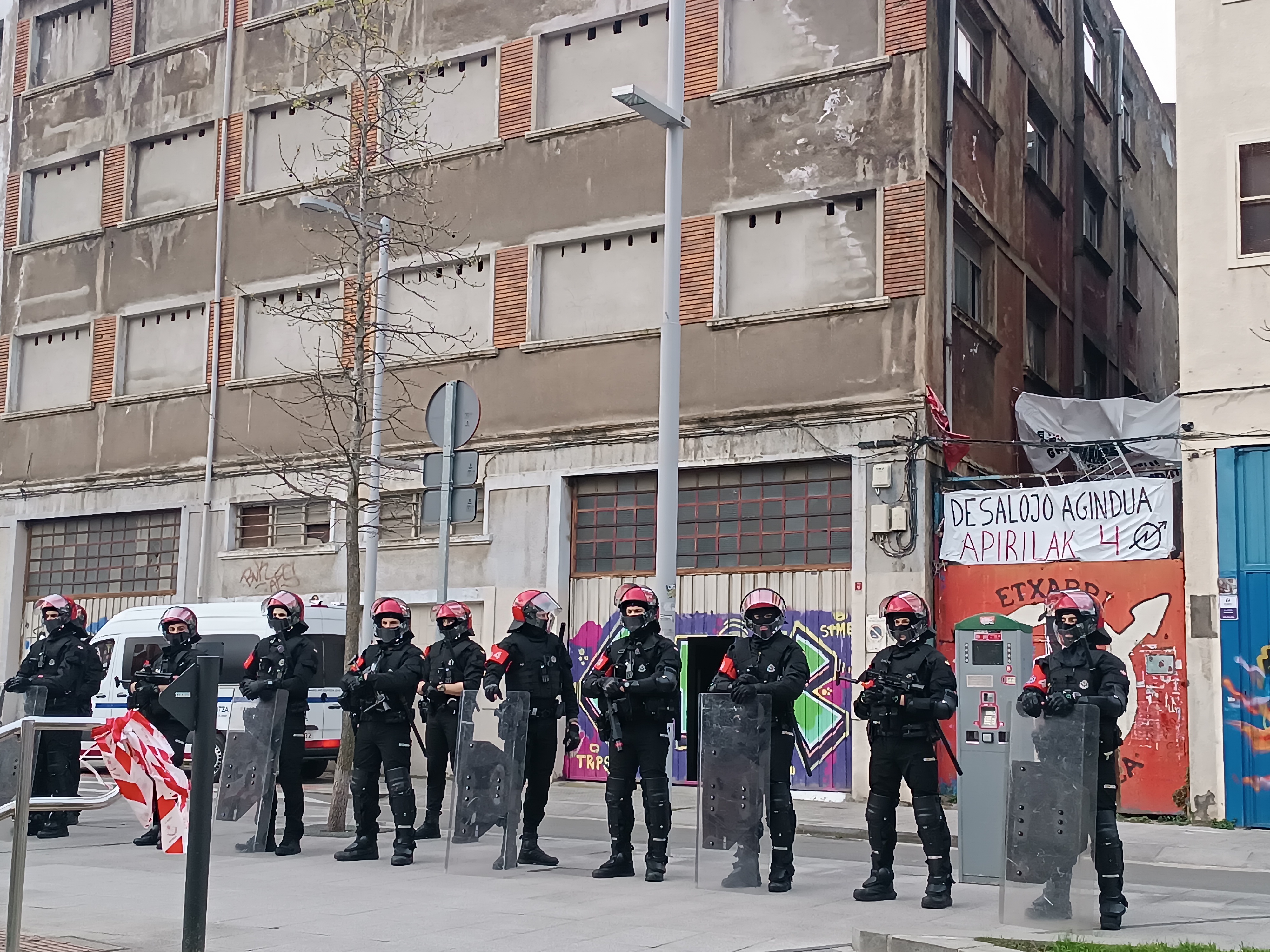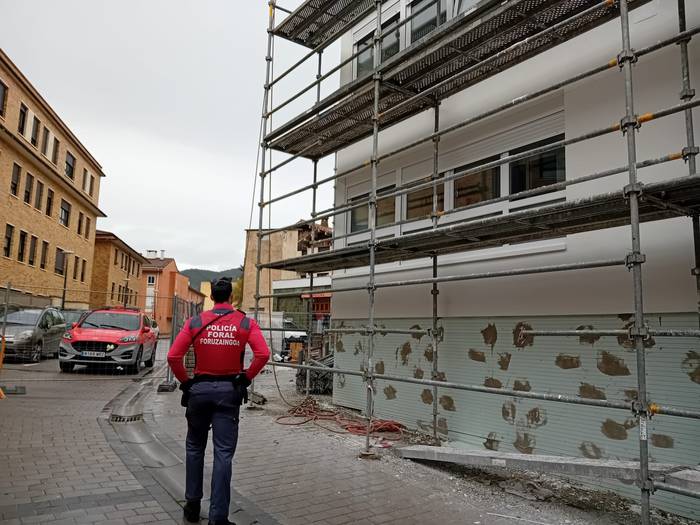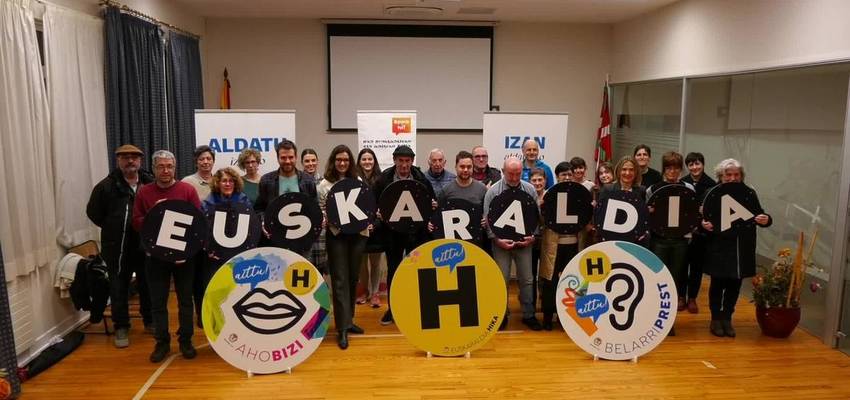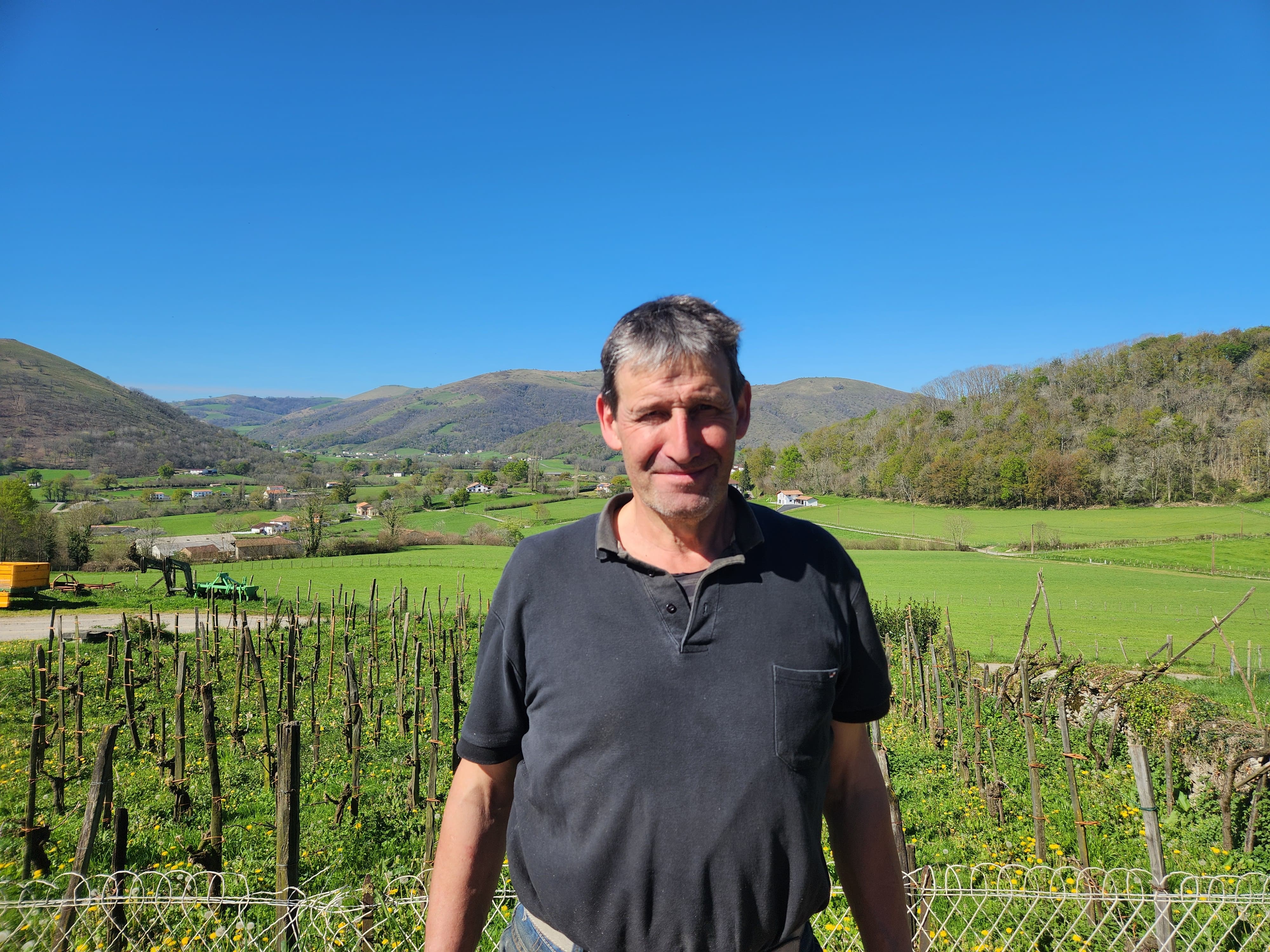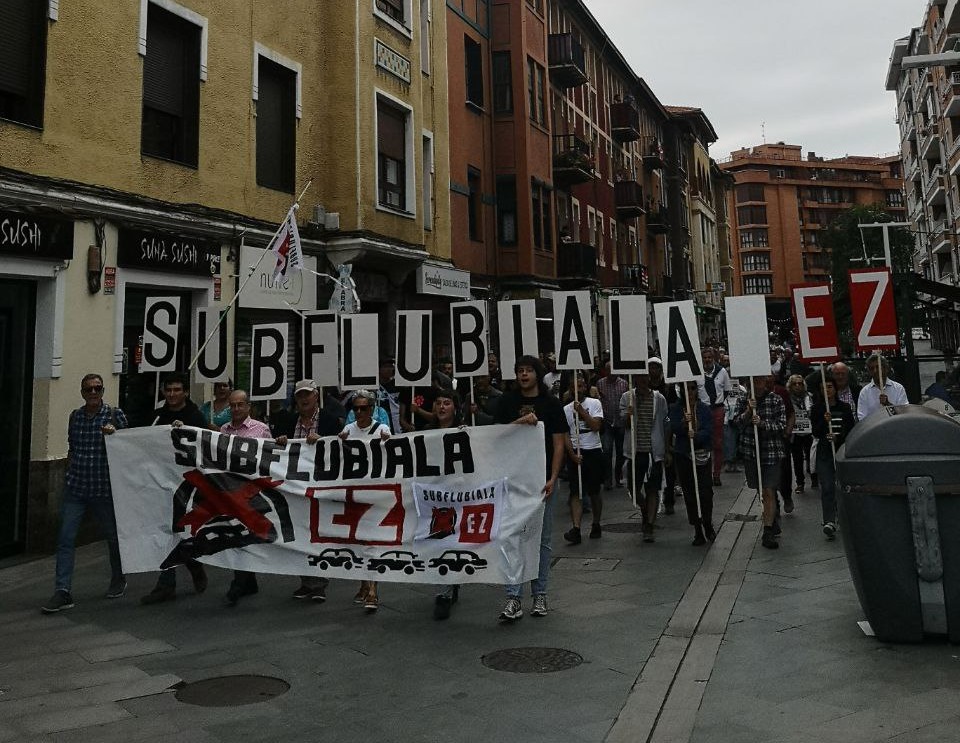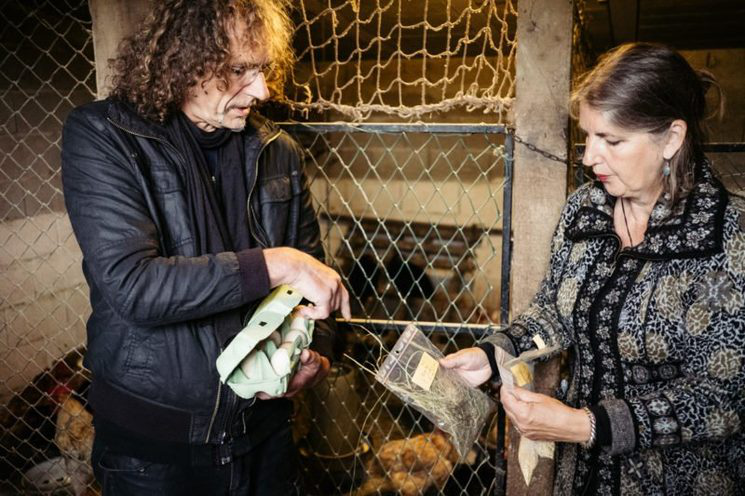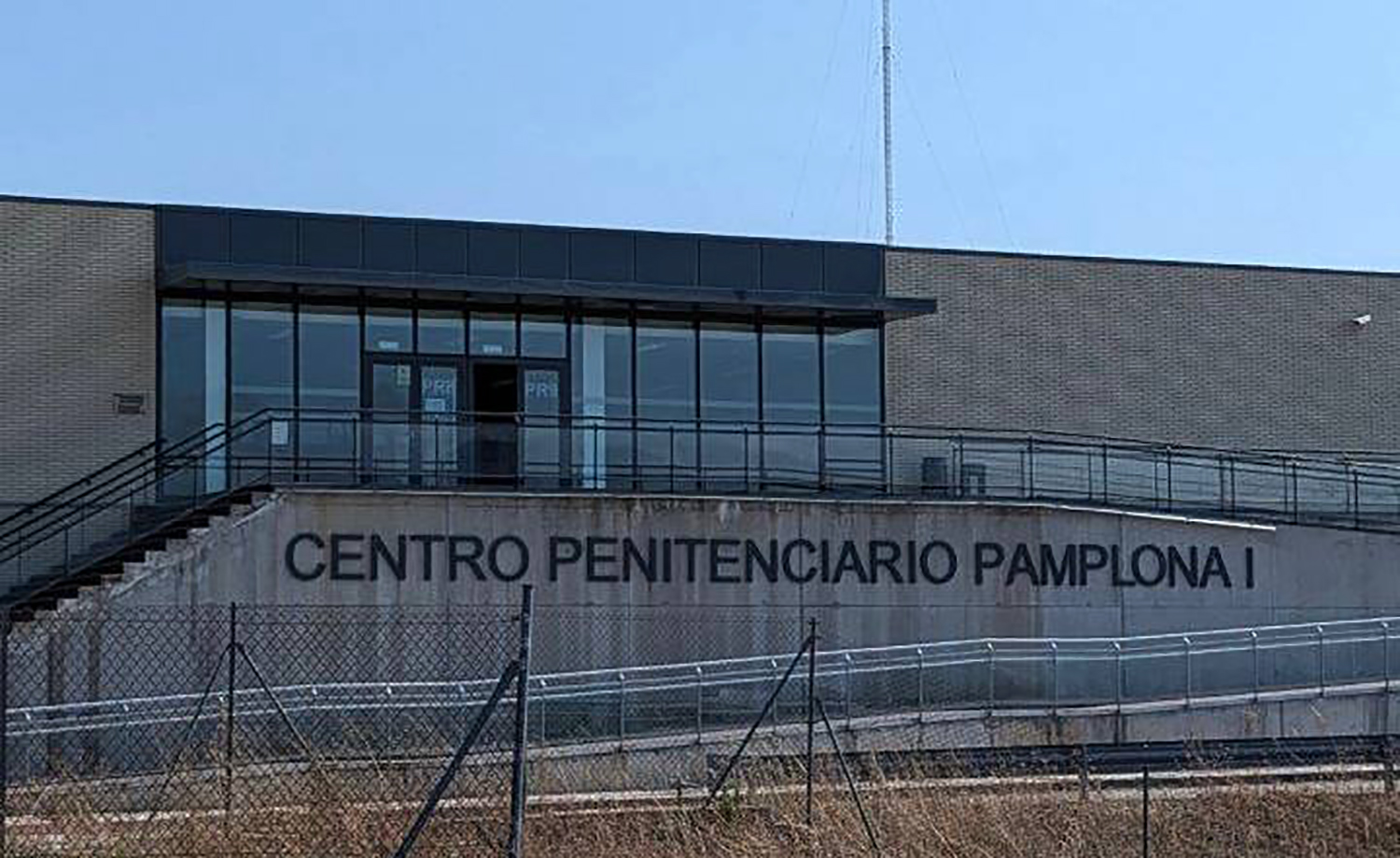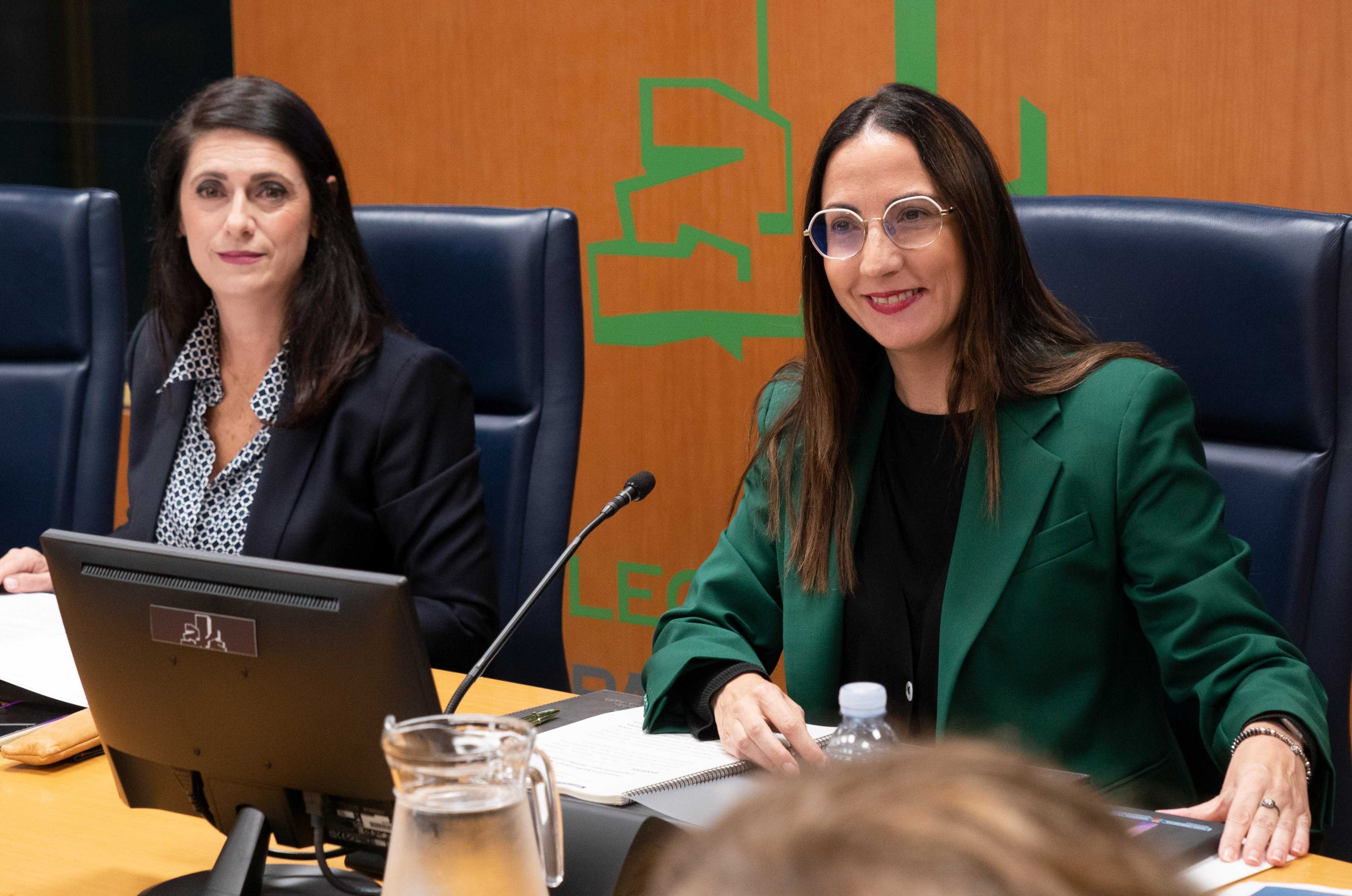"When we came from exile, we had been taken from the house of Bilbao!"
- A picture. The young woman shows up. Behind, the most beautiful words a father can hear, the words his daughter has sent to his mother. “As a sign of love, your daughters. I love you. 1938-VI-6. Wight.” Rosario Beaskoetxea sent her parents when she was in the camp in England. Today he no longer has another memory, but a memory.
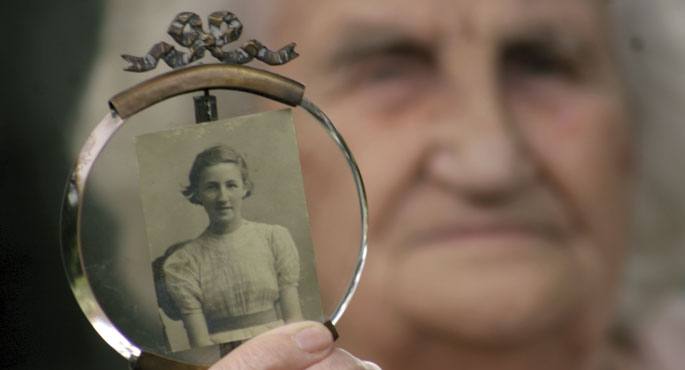
I read it another day and I moved it here so that anyone who has no news of the children of war can keep it in thought: “The number of children who came to Britain is not accurate. According to official sources, a total of 3,840 children arrived, accompanied by 80 teachers, 120 auxiliaries and 15 Catholic priests, who were welcomed by the Catholic Church. The SS Havana left the port of Santurtzi on the night of May 22, 1937 to Southampton.”
Yes, I also got into the boat Havana. My mother, my brother Jon, my sister Julita… and my grandmother and aunt went to Santander fleeing the war. My father went to Iparralde somewhere else. They sent me alone. England. They stayed here. I don't know why they put me on the boat. Maybe because I was scared by the bombings. I don't know. I entered Havana, in the midst of great chaos. My father had talked to a young lady from a neighborhood school to take care of her, but I didn't like the lady and I left. And I stayed alone. He had a ticket on his chest. It was 550. It was a cardboard card. On the boat I fainted completely. I remember they were distributing large biscuits. I saw them and they looked sweet to me, but my fainting was on the rise. I remember that journey lasted the day. And even a boat came out to us. They said it would attack us, it would shoot us torpedoes -- but it didn't.
They came to Southampton ...
And on the occasion of the coronation of Georges VI.aren we saw the adornments hanging in the port. I thought it was to welcome us! They were taking off the ornaments. I walked by the boat alone until I met that woman again. It was he who cared for me, and he had also guarded me in the tents of England. Three camps were set up. Abertzales in the first and the other two. There was a large tent, the church, and on the way to it we were thrown with a bucket of water from other camps, communists, socialists or I don't know what they were. I come to Southampton, and that's my memory: I see myself in the camp. We were eight or nine kids in every tent. It was well organized. Discipline was tough. She took care of me... Maria Legarreta, that was her name. It was fair! I don't think I've made great friends. I know that I went to the island of Wight and that María Legarreta did not come. I don't know how long I was in that first camp. I know I was on the island for two years.
Memories of the stay on the island of Wight?
Yes, yes! We arrived and there was a beautiful mule. Impressive fields of cultivation, spectacular prairies… We, the children, had great spaces to play and have fun. We had nuns to take care of us, Irish, from St. Joseph. They told us we didn't go far enough not to step on the grass, that the owner sold that grass, but we, kids, didn't listen to them. We were doing what we refused to do. Here we would lie on the grass and roll. One day, the Great Mother got angry like never before, she ordered us to meet and scolded us. “I have no money!” he told us. I mean, they had that herb to sell, and we had to be accountable. I also learned a little bit of English. We also had two priests with us: Don Pedro Atutxa and Don Benito Larrakoetxea. I think Father Atutxa was a pastor of Santa María de Durango. Don Benito taught us English. As I learned later, he brought Shakespeare to the Basque. We also had math classes, catechesis -- a lot of things. Another teacher, daughter of Lezama's doctor, took me to her room, where I had two beds. Always better there. We were hundreds of kids, and soon I made friends.
They were the nuns of St. Joseph.
They took care of us. They were such tight nuns! When the flu opened up, Sister Faithful didn't forgive. It was a red-haired nun – I would discover a little hair – and the one I sent there the most. When we took the cold, it gave us lemon water, with sugar. But if I surprised anyone talking, I would knelt at the bed and give him the punch. Then I let him lie down. It was a very funny nun. In winter, we were given the cod for the liver oil. We took the spoon and we stood in line. But apparently, some of them were throwing the oil; the nun knew that some of them didn't catch it, and since then all of us were putting the spoon in line and holding it by hand. She would fill him up and put us in his mouth. And we had to say, "Thank you, Sister!" We had a utility room. There we washed our teeth and others. Once a week, we had a bathroom. Laundry was our thing. Some of us were in charge of ironing and sewing clothes. The kitchen was very large. Friday was still a fast, and the smell of smoked herring floated in the morning in the camp. St. Patrick's day was special: they gave us panceta, eggs and others. And so -- we were on the island of Wight, and the guys in Southampton -- some, at least -- with the nuns of St. Joseph as well. The nuns received orphans, and they also received Basque children who had gone to Havana, I mean. One day when I was August 2 – Bank was a holiday – we made a big party in this big house. They played and the loudspeaker said: “Come on, one penny!”, a penny for participating. The boys who were in Southampton also arrived, and one of the open men danced the sword. We, on the other hand, dressed in irule, danced the apple, sang… It was a great party.
Did you know anything about your parents? Did they have news of them?
Yes, we wrote letters home and we also received news from yours. Don Benito gave us these letters. I haven't kept it at all. I once sent a picture home. Here we saw Begoña Gerrikaetxebarria – she was fat –, Teresa Beaskoetxea, some more, and the four. Theresa was called as us, but we were not brothers. Teresa was always sending. He told us that the letters our parents sent us had to be read up. He sent the photo home, and in the letter my sister received back, she said to me: If you have fatter friends! And I had to read it out loud. Ha, ha, ha. Those stories of children. We went for walks, to the mountain, to the Needles, to Totland, to Alum Bay… All the beaches were stone. We didn't bathe, we just walked. Well, in those exits we always met people from Salvation Army. They were everywhere. We were walking, we were growing up and we were spending the shoes that had taken us out of the house and we were given tougher shoes that had nails underneath. We once premiered our shoes and when we walked through a neighborhood, we were told not to go back over there, because apparently, we made a terrible shoe noise.
One day you got back together with your family…
My parents asked us to come. From the island of Wight, we went to London, then to France, and we got to Dax by train. They came to find me at the station, except for my father, who worked in Bayona. He was always on his way back and forth. Roselle was dedicated to fixing the hospital and was also in Capbreton. But we all met in Dax. The parents lived for rent in two rooms, in the chalet of a few nuns, on the avenue of Georges Clemenceau. I didn't do anything at Dax, I didn't go to school, nothing else. Go to the shelter and eat, helping the mother. I was staying at home and I was dedicated to watching the exits of the English camp. My sister has told me that she wore a red skirt underneath her flannel so as not to cool down what we had been given in the camp, and that she wore it also in Dax, although it wasn't as cold as there. I also had a beard shaped soap in my suitcase and spent my time looking at them, my sister says. On the contrary, Miss Levip, under the house, said that I practiced sport because, apparently, it made noise. I wasn't doing sports, I was taking things out of my suitcase and putting them in. I remember I had a dictionary, an English dictionary, that Don Benito recommended that we buy in the English camp. Once, Father Benedict came to Dax. In the village there was a great friend of the Basques, who had a bar. There was Father Benedict, and there my father and I visited him. So I would know that Shakespeare was translating into Euskera. In Dax, we're one year old. Then, when the World War broke out, we went to Tarbes, where they had an arsenal and a need for everyone. I mean, my sister also worked there. His father made drawings and an architect from the place offered him to do what he needed there. But the Germans arrived and it was over. As soon as they arrived, we left with many other refugees. We've been out of Euskal Herria for four years.
You went back to Bilbao with the Second World War.
Yes, we were able to come, along with many other refugees. We went through Canfranc. We did one night in Zaragoza and we came to Bilbao, to an aunt's house, because we had been taken away from ours. Of course, we were unable to recover the house. We went from my aunt's house to another house on Doctor Areilza Street, where we stopped. My father was a great nationalist, and I remember when we came back, he didn't go to the movies so he didn't have to stand up when Franco appeared in the images. The mother wanted to go, the father didn't. “I’m not going to get up!” he said… I was 16 when I came back to Bilbao.
Maria del Rosario Maria de Begoña Estanislada Beaskoetxea Gabiria (1924, Bilbo) ditu izen-deiturak, baina ‘Agurtzane’ izango zen Primo Riveraren diktadura garaian jaio izan ez balitz, senideen izenen legean. Begoña aldekoak zituen aita Arsenioren aldeko aitaita-amamak. Arabako Moretakoak, berriz, ama Amparoren partekoak. Ikastetxe batean baino gehiagotan izan zen txikitan, eta euskarazko eskolak jaso zituen. “Gure aitak guk euskaraz ikastea gura zuen. Beharbada, berak galdua zuelako”. Gerrak eten zuen hura. Atzerrian egin zituen 12 urtetik 16ra bitartekoak. Itzuli zenean berrosatu zuen bere burua. Takigrafia eta Mekanografia ikasketak egin eta bateko kontsulatuan eta besteko banketxean egin zuen lan. Ezkondu zen arte. Gerrako haur, lekuko bizia.
“Delineatzailea zen. Auzoko eskolak egin zituen, Zamudioko zoroetxea... Amaitu barik utzi zuten Zamudiokoa. Hura egiteko, Suitzara joan zen, hainbat medikurekin batera, instalazioak zelakoak egin aztertzeko. Denboralditxoa egin zuen kanpoan. Gerra hasi zenean, Jaurlaritzarentzat egin zuen behar, kartzelak sendotzen, haien kontra ez egiteko. Horiexek gure aita zenaren merituak. Eta hemen geratu izan balitz, harrapatu izan balute, seguru da hilko zutena”.
“Gure amak ez zuen joera politikorik erakutsi bizian. Biak, hala aita nola ama, odol berokoak ziren, eztabaidak izaten zituzten noiznahi, baina gerra garaian banatu beharra izan ostean, Bilbora esku-hutsik itzuli, kendua zigutelako gure etxea, kendua ziotelako lana aitari diputazioan –hutsetik hasi behar izan zuen ostera–, bada, amak, behin ere, behin ere, behin ere ez zion errurik leporatu: ‘Hiregatik ari gaituk gorriak ikusten!’. Behin ere ez zion horrelakorik esan”.
“Gerrako haurra? Ez dakit zer esan gura duen ere. Orduan inork ez zuen horrelakorik esaten. Nik ez daukat nire burua gerrako umetzat, gurasoekin egon nintzen-eta denbora gehiena, Ingalaterran igaro nituen urte bi haiek izan ezik. Frantzian ere, gurasoak eduki nituen ondoan”.
I'm talking about Interview. With water and sand
Authors: Telmo Irureta and Mireia Gabilondo.
The actors: Telmo Irureta and Dorleta Urretabizkaia.
Directed by: Assisted by Mireia Gabilondo.
The company is: The temptation.
When: April 2nd.
In which: At the Victoria Eugenia... [+]
Euskal Herriko Laborantza Ganberak hogei urte bete ditu. 2005ean sorturik, bataila anitzetatik pasa da Ainiza-Monjoloseko erakundea. Epaiketak, sustengu kanpainak edota Lurramaren sortzea, gorabehera ainitz izan ditu hogei urtez.












